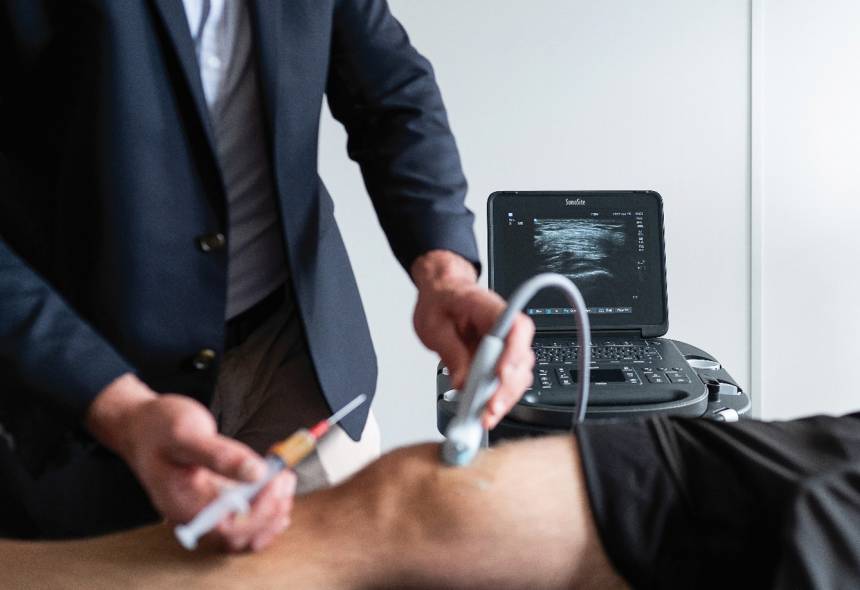Advances in injectable treatments for knee arthritis
Date Posted: 5th April 2023

Over 8 million people in the UK are currently suffering from some form of osteoarthritis. The knee is one of the most common sites to develop arthritis and results in pain, stiffness, and loss of mobility. Due to modern lifestyles, 1 in 4 of us will require some form of treatment for knee osteoarthritis in our lifetime.
Osteoarthritis is, however, not an inevitable consequence of aging but a disease that can be treated like any other. Osteoarthritis occurs when a joint fails to repair itself after damage. Like any other injury, damage to the knee results in inflammation. If this inflammation is excessive or constant, it activates enzymes that break down the cartilage which causes further inflammation. The joint then enters a vicious cycle of damage and inflammation which will eventually lead to complete cartilage loss and joint failure.
Though not completely preventable, there are steps that can be taken to significantly reduce the likelihood of this developing. Maintaining a healthy weight and undertaking regular exercise to strengthen the muscles and support the joints is highly recommended. Low-impact activities such as swimming, cycling and brisk walking are particularly beneficial and help to keep joints healthy.
Patients with early arthritis often have symptoms of joint pain, stiffness, and intermittent swelling. The key to treatment at this stage is limiting further joint inflammation and cartilage damage. One new treatment option available is called “Platelet-Rich Plasma” (PRP) which uses the patient’s own cells to combat early arthritis. Platelets found in blood contain natural anti-inflammatories and growth hormones that can be collected, concentrated and injected into an inflamed joint. These injections have been shown to improve pain and function with the effects often lasting for over a year. Repeated platelet-rich plasma (PRP) injections, when combined with a natural lubricant called hyaluronic acid (HA), may even improve the quality of the existing cartilage and defer the need for joint replacement surgery.
For patients with severe pain and loss of function, joint replacement is often the best option for long lasting pain relief. Modern knee replacement surgery using minimally invasive approaches and enhanced recovery protocols have been shown to be safe and effective. These techniques allow many patients to walk on the day of surgery and be back in the comfort of their own home in less than 24 hours.
Until recently, patients who declined surgery or were deemed too unwell for an operation had very few options other than regular steroid (Cortisone) injections. However, a new treatment specifically for patients with moderate to severe osteoarthritis has recently been developed and is now available at St Joseph’s Hospital.
Injectable non-degradable hydrogels, act as permanent lubrication and a cushion that sits in the joint without being resorbed. They have been shown to significantly reduce pain and improve function for at least 56 weeks, with recent evidence suggesting these results last well beyond three years. Hydrogels have been used since 2001 across multiple different areas of medicine, are safe for use in almost every patient and the procedure can be carried out as a single 30 minute outpatient procedure.
These innovative new injectable treatments allow a much more individualised approach to osteoarthritis management focused on prevention, early intervention and symptom control. Gone are the days when patients with arthritis are sent away to wait until their arthritis is more severe or filled with pain killers to mask a joint related problem.



